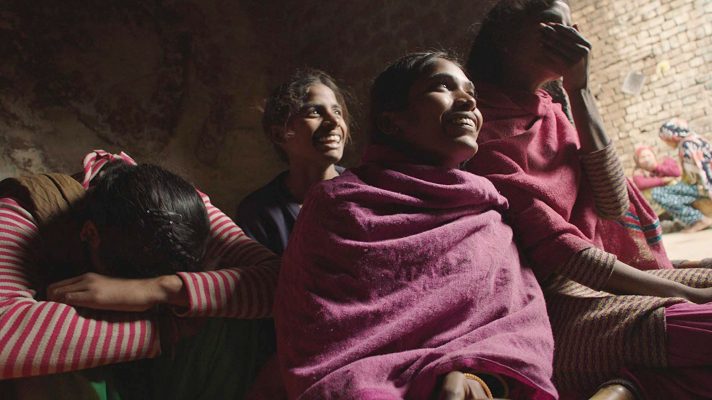By Dennis Shaughnessy
There are two terrific recently released films that I recommend to our readers.
The first is “Period. End of Sentence”. This short documentary won an Oscar/Academy Award for the category Best Documentary-Short Subject. It chronicles the profound impact of the introduction of locally produced affordable feminine hygiene products on poor women and girls in India. Situated in Hapur, India and inspired by the creator of the machine that is used to manufacture low-costs sanitary pads, Arunachalam Muruganantham, the film reveals how a group of women came together to create a small-scale manufacturing operation for these pads to be sold at low prices to local women and girls. Far too many women and girls experience the “shame” often associated with menstruation in some communities where the topic remains taboo.

We have longed admire Aakar Innovations (where NU alum Gail Batutis worked as our inaugural SEI Fellow) and other social enterprises who work in this important space at the intersection of public health and social enterprise. For years we have shown in our classes Muruganantham’s short video called “Rags to Pads” to introduce how womens empowerment can begin with micro-enterprise creation through grassroots innovation.
An affiliated organization sponsored by a high school in California called “The Pad Project” raises funding for the replication of these “mini-factories” in other poor and low income communities.
Our trip later this year to Cape Town includes a project to replicate the work seen in this movie in one or more of the townships.
The second film is “The Boy Who Harnessed the Wind”. This Netflix Original Movie stars Chiwetel Ejiofor, originally from Malawi and also the director of the film. It is the movie adaptation of a 2009 book by the same name that tells the compelling story of William Kamkwamba.
Growing up in rural Malawi on a smallholder farm not unlike those supported by social enterprises like The One Acre Fund and Root Capital, Kamkwamba created a patchwork irrigation system using a windmill for electricity to drive the water pumps during the dry or “hunger” season. This film allows us to see the importance of universal access to quality education as well as the power of grassroots innovation to solve social problems.
Kamkwamba is a determined and passionate young inventor who is motivated by a drought-driven famine in his village of Wimbe near Kasungu. His story of how he overcame the many challenges to receiving a quality education in a poor rural community is inspiring.
So many of the world’s poorest families live in rural communities in which farming is the primary source of nutrition and income. Providing tools and information to smallholder farmers that can improve their production and yields is one of the most potent forms of poverty alleviation. A continued focus globally on supporting smallholder farmers is an essential step in making further gains in reducing the suffering of extreme poverty, especially given the impact of climate change on the world’s poorest farmers.


